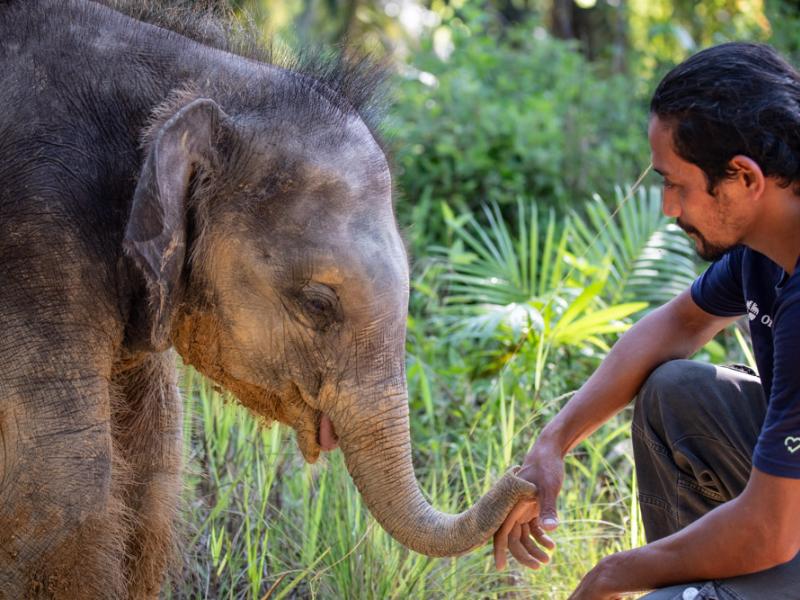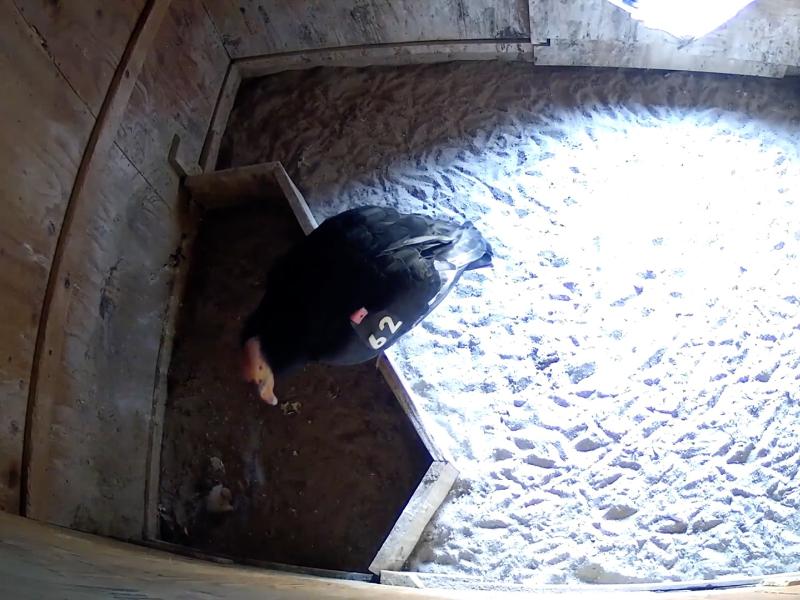
Oregon Zoo: What inspired you to pursue a career in veterinary medicine?
Molly McAllister: I have loved animals for as long as I can remember, and feel fortunate that I grew up on a family farm. Because of that, pets were a natural part of life and I was able to experience the joy of learning about, raising and caring for all types of animals. The happiness my pets brought me inspired me to go into a career in which I could return that favor, and also I wanted to help other people experience the joy and love that pets bring.
What should pet owners know about COVID-19?
The situation is evolving daily, and we don’t have all the answers, but here’s what we know now:
- SARS-CoV-2, the virus that causes COVID-19 in humans, appears to spread most efficiently from human to human; there is no evidence that pets can transmit it to humans.
- Testing pets is unwarranted at this time. However, it is advised to keep them away from infected people, and to confine pets of infected people.
- Good hygiene is important, especially before and after interacting with pets.
Pet owners should follow recommendations from reputable sources such as the World Health Organization, the Centers for Disease Control and Prevention, the World Small Animal Veterinary Association and the World Organization for Animal Health.
With people staying home more, and some dog parks closed, what are your tips for keeping pets active?
If they are able to, dog owners should walk their pets daily while following best practices for physical distancing. If walks or runs aren’t possible, try games of fetch in a fenced yard. (For unfenced yards, a long elastic leash can let dogs run while keeping them safe.) Practicing a pet’s training routine and revisiting behaviors they haven’t tried in a while can serve as a form of exercise. And, if no joint problems exist, home obstacle courses can be good for a pet’s brain and body.
Any advice for keeping pets mentally stimulated indoors?
Several indoor activities can engage pets both physically and mentally — for example, playing a game of hide and seek with their favorite toy, or teaching them a new trick. Interactive toys that can be filled with kibble or peanut butter, or toys that move or make sounds on their own, can help keep pets stimulated for longer with minimal effort.
For additional ideas and information, visit Banfield’s COVID-19 resource center.
More News

Zoo seeks pika watchers for summer season
The Oregon Zoo is recruiting volunteers for Cascades Pika Watch.April 15, 2025

Zoo convenes action for imperiled elephants
Sabah government representatives joined conservation NGOs, local communities, palm oil producers, and tourism operators this week in the fight to save the world’s smallest elephants from extinction.April 11, 2025

Double fluff: Zoo welcomes first condor chicks of season
The first two California condor chicks of 2025 hatched at the Oregon Zoo’s Jonsson Center for Wildlife Conservation.April 3, 2025

